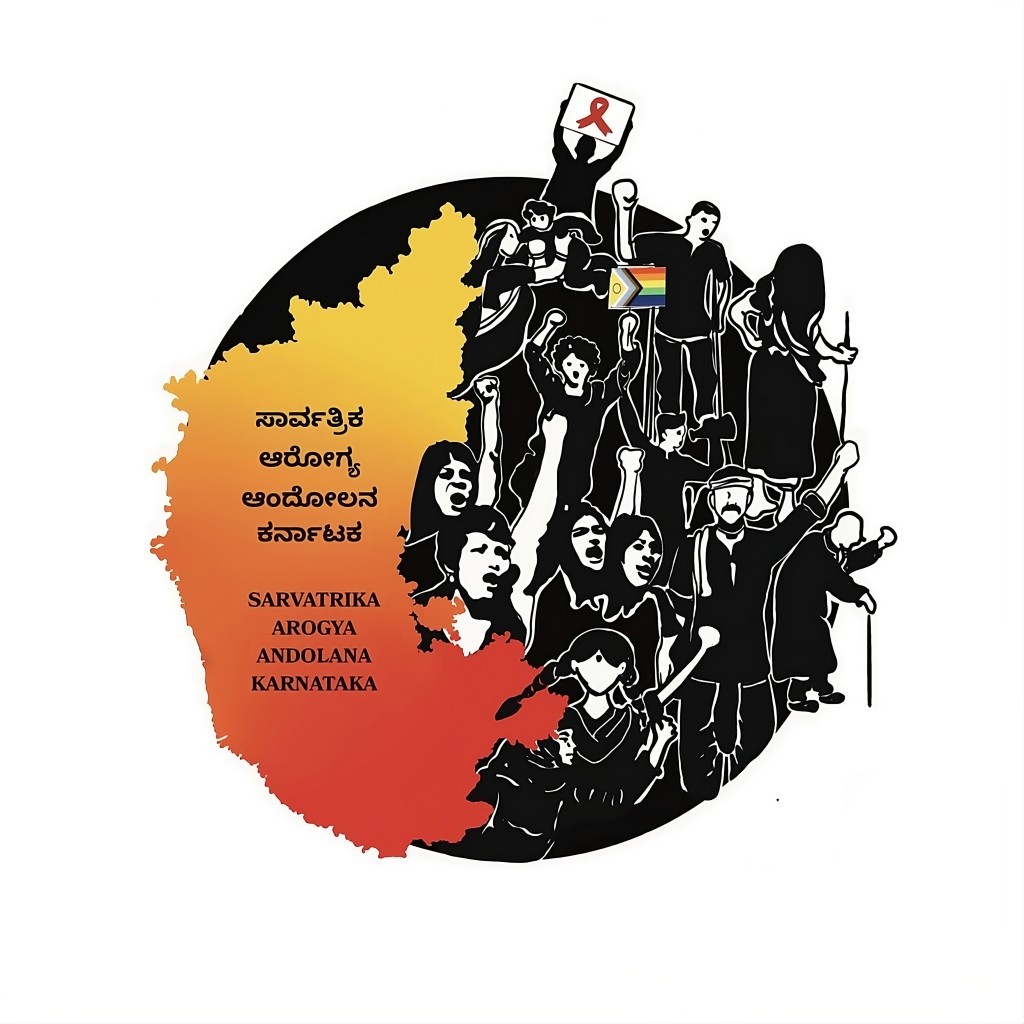Background: Karnataka’s health indicators are the worst among the other southern Indian states. The Maternal Mortality ratio (MMR) is at 69, even though it has improved from 228 in 2001-2003, it is still nowhere near Kerala’s level of 19. Similarly, when it comes to Infant mortality rate (IMR), Karnataka has an IMR of 21 as compared to Kerala at 6. In Karnataka, 65.5 percent of children between the ages 6 months to 5 years are anaemic so are women who comprise 48 percent. Of course, the averages mask the inequalities within the state with districts like Raichur and Bidar performing much worse.
The issues: There are many issues that affect the health system in the state.
- There is no move by the state government to bring in a Right to Health legislation (including social determinants).
- During and post-Covid, the lack of social security among informal sector workers and other poor populations and the resulting lack of food availability was starkly exposed.
- The governments’ move towards more and more informalisation and contractualisation deprives marginalised communities and working class of their social entitlements.
- Vacancies of staff in services and departments across the state, even in urban areas, particularly specialists; pharmacists etc.
- Lack of access to free and essential medicines with the doctors writing ‘prescriptions’ and the resultant high out-of-pocket expenditures (OOPE).
- Primary health centers are not functioning full time.
- High levels of malnutrition and anemia, particularly in women and children.
- Neoliberal governments are increasingly advocating for Public Private Partnerships (PPP) and thereby absolving themselves of their accountabilities, even though there is no evidence to show that they have worked, eg., the OPEC hospital in Raichur. This, despite the Karnataka health vision committee’s recommendations to relook at PPPs. Also, the private sector was largely absent during the first two waves of the COVID pandemic with the public health system having to bear the most of the load and the only private ones somewhat functioning were corporate hospitals which exploited the people to the extent that it forced the government to intervene and get the amounts reimbursed. Despite this, the governments led by NITI aayog are repeatedly prescribing the PPP models for every service delivery.
- The publicly funded health insurance schemes (PFHI) like Arogyashree, Ayushman Bharat-Arogya Karnataka are oriented towards private tertiary care rather than preventive and primary care. These insurance programmes also promote irrational and unethical treatments like unnecessary C-sections and Hysterectomies and governments do not regulate the private sector effectively for standard treatment protocols. The insurance programmes often do not support the full scope of follow-up care and medicines.
- There are no policies to actively support gender and sexual minorities and their health and well-being.
- No specific measures are taken regarding Persons with Disabilities, elderly, migrant workers, People living with HIV
- No active interventions on mental health, especially important in the post-COVID context.
- People’s participation in governance of public health system is ineffective as most Arogya Raksha Samitis are dysfunctional
In order to demand for health rights (including social determinants) and raise the above issues to hold the governments accountable, there was a felt need for a strong, unified, civil society movement to advocate on health related issues (including the social determinants such as social security, nutrition, gender, migration etc). Governments have been introducing many anti-people policies in recent times, which have been questioned by many organisations/individuals, but not as a unified civil society and hence the voices have not been forceful. To initiate a broad-based platform, a few organisations/networks/individuals came together to send out an appeal to all the organisations/networks/unions/ to join a broad civil society platform to demand better accountabilities on health in the state. It was also decided to hold a meeting on 22nd December 2022 in Bangalore at St. Joseph’s College of Commerce.
112 people, from more than 30 different organisations/networks/unions such as Garment workers’ union, ASHA union, gender based networks, construction workers’ union, organisations working with waste pickers, geriatric people, municipal sanitation workers, dalit groups, LGBTQI+ network, sex workers union, health resource organisations and so on participated in the meeting. After a brief stage setting introduction of the issues on hand, each of the networks were given a brief time to explain the issues they face vis-à-vis health and a long list of issues were noted. It was finally consolidated into 6 major issues on which to work together in the future. The 6 issues were:
- Absence of Health as a Human Right
- Issues with health system including staff vacancies, lack of medicines, emphasis on documentation (aadhaar etc) for availing health services
- Mental health not given priority
- Lack of medicines in the public health system
- Lack of empathy in public health staff behavior
- Increased privatization in health sector
There was a consensus built that the group shall work together on these 6 issues in the coming months. There was also a working committee evolved comprising of only younger members present to take the movement forward. A new name was coined for the initiative – Movement for Universal Health.
